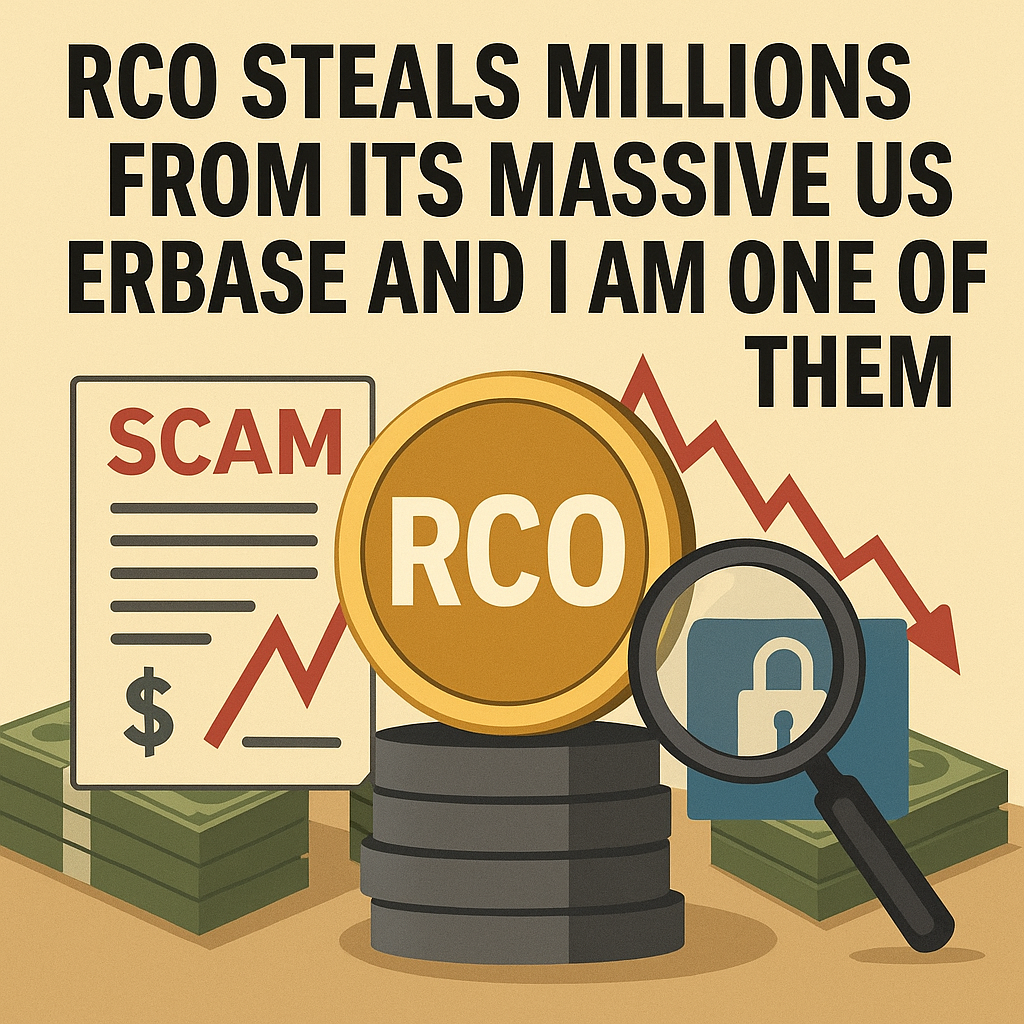RCO Finance Scam: Tens of Millions Stolen From 24,000+ Users in Massive Crypto Fraud

RCO Finance Scam – Millions Stolen From 24,000+ Investors
Introduction
In 2024–2025, RCO Finance promoted itself as a revolutionary AI-powered DeFi platform with “next-generation” trading bots and guaranteed profits. Its slick marketing and sponsored press releases made it look legitimate, drawing in more than 24,000 investors worldwide. Yet beneath the glossy exterior lay a textbook crypto scam: fake tokens, honeypot contracts, bonus withdrawal traps, and eventual disappearance. This article investigates how RCO Finance operated, drawing from Reddit investigations, Trustpilot reviews, audits, and warnings from regulators like ASIC.
The Presale Trap and Token Liquidity Scam
The heart of the RCO Finance scam was its presale of the RCOF token. Buyers were promised listings on Uniswap and later on major centralized exchanges such as Binance or BitMart. But after months of presale hype, there was no liquidity pool, no listing, and no way for investors to sell their tokens.
Alarm bells rang when SolidProof flagged RCOF’s smart contract for a honeypot vulnerability. Soon after, BlockAid confirmed the contract was malicious — designed to let buyers purchase tokens but not sell them. This was further supported by CoinGecko and CoinMarketCap never listing RCOF at all, despite RCO’s claims of imminent exchange launches.
As investors grew nervous, they flooded Reddit forums with questions like “How do I sell?” — only to be banned by moderators in RCO’s official Telegram. By mid-2025, thousands were left holding illiquid tokens they could never trade, a classic rug-pull maneuver.
The “Claim Bonus” Withdrawal Scam
Beyond the honeypot token, RCO Finance employed another predatory tactic: the “claim bonus” scam. User dashboards displayed inflated balances and bonus tokens, encouraging investors to believe they had doubled or tripled their initial deposits. But when they tried to withdraw, the platform blocked access.
Victims were told they needed to pay additional “unlock fees” or “gas fees.” In one shocking case logged by the California DFPI, an investor was asked for a $45,000 fee just to retrieve his balance. Others were pressured to “top up” their accounts to meet minimum withdrawal thresholds.
This mirrors the pattern of pig-butchering scams reported by The Guardian, where fake platforms lure victims with paper profits and then bleed them dry with escalating demands. As one Reddit moderator put it: “No legitimate company ever makes you pay to withdraw your own money. That’s always a scam.”
Voices of the Victims
Victims quickly took to Reddit, Trustpilot, and Medium blogs to warn others. Trustpilot’s page is flooded with 1-star reviews:
- “Big scam… lied twice about launch, never received coins. Can’t get money back.”
- “Investors were supposed to get tokens June 28 when presale ended — no one got them.”
- “You receive 0 tokens, they stall with excuses in Telegram, then ban you.”
Meanwhile, independent writers like Roman Locke described being locked out of his account entirely after losing 2FA access, with no support responses. The psychological toll of these scams was as devastating as the financial loss, with many victims reporting sleepless nights, anxiety, and fear of future investing.
Paid PR vs Independent Warnings
Despite the growing number of warnings, RCO Finance used aggressive PR to drown them out. Sponsored content appeared on CryptoNews, CoinSpeaker, and CoinGape, touting RCO’s “AI breakthroughs” and “presale momentum.” None of these articles disclosed they were paid promotions.
In contrast, independent reporting painted a much darker picture. A Medium article by Ryan Kuhn highlighted plagiarized documents, anonymous leadership, and censorship in RCO’s Telegram. By March 2025, The Guardian profiled pig-butchering scams identical in design to RCO’s, though without naming it directly.
Regulatory Alerts
In February 2025, ASIC’s MoneySmart formally warned Australians against RCO Finance, labeling it an unlicensed entity. In the U.S., victims filed reports with the FBI’s IC3 and DFPI. Scam monitors such as ScamAdviser rated its domain as high risk. These warnings came too late for many — but they confirm RCO’s fraud was recognized globally.
Collapse and Exit
By Q3 2025, RCO Finance vanished. Its website disappeared in August, Telegram went silent, and its final Twitter/X post falsely promised a BitMart listing. No tokens were ever distributed on-chain. No refunds were ever issued. The project’s anonymous team vanished with millions.
Conclusion: Lessons from RCO Finance
RCO Finance shows how modern crypto scams exploit hype cycles:
- Tokens locked in presale with no liquidity.
- Smart contracts coded as honeypots.
- Bonus-claim traps to extort more funds.
- Censorship of dissent on Telegram and social channels.
- Paid PR creating false legitimacy.
For investors, the takeaway is clear: always verify liquidity on blockchain explorers, avoid presales without transparent exchange listings, and never trust platforms that demand fees to withdraw funds.
Further Resources
👉 Explore trusted Bitcoin mining hardware and accessories at
ING Mining, or contact us directly via our
Contact page.
